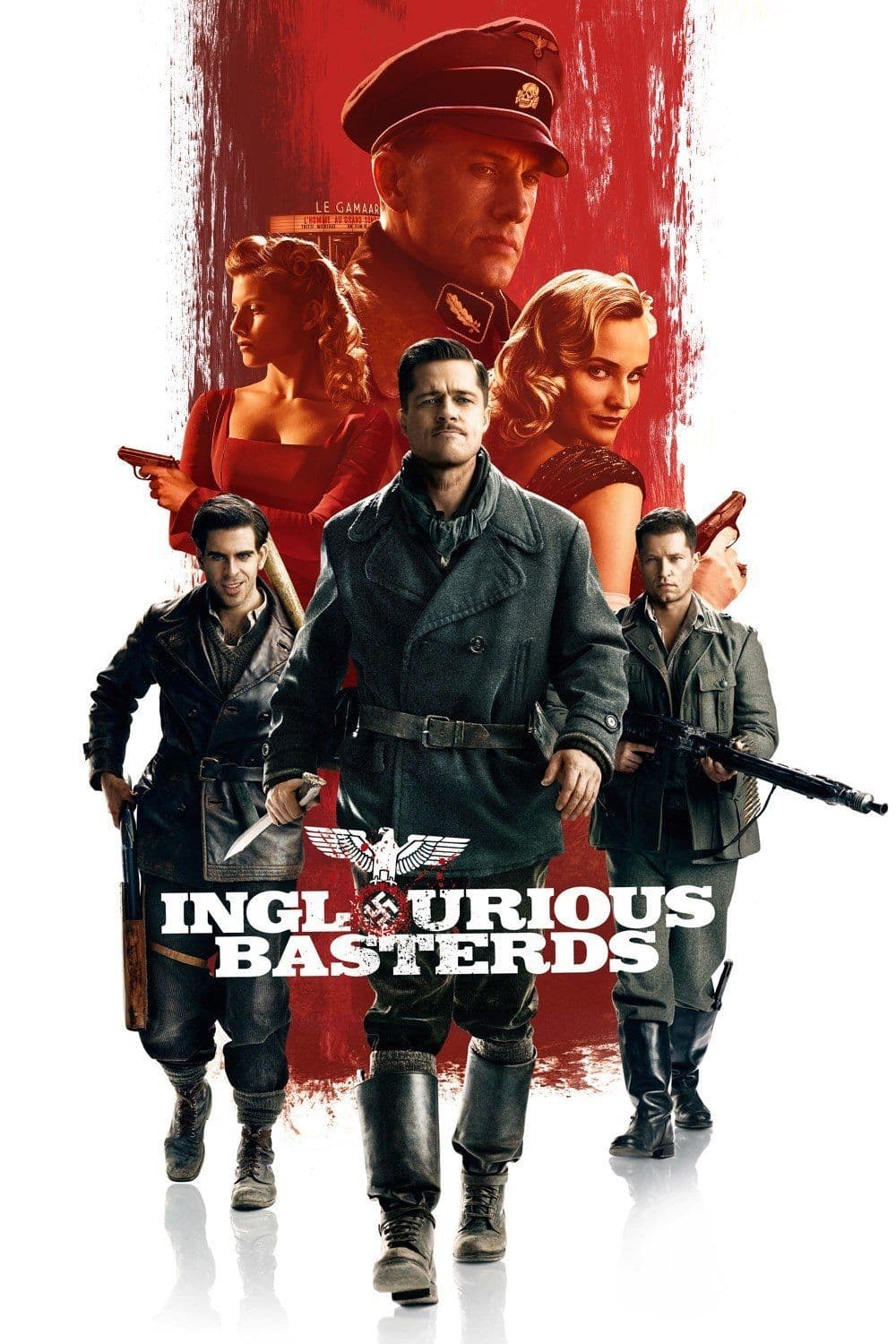
Inglourious Basterds
2009
Rate this movie
Average: 5.00 / 5
(1 votes)
Director
A film that is in some respects surprising, this one by Tarantino, which deviates from his urban vein, steeped in pulp and crime, to tackle the war genre, but he does it in his own way, with his usual irreverence and dizzying stylistic mastery that transcends all expectations. Tarantino does not limit himself to a mere change of setting, but expands his universe of references, archetypes, and narrative deconstructions into a historical context which, in his hands, becomes malleable material, almost a gigantic toy for a bold and provocative rewriting.
But Tarantino's war is devoid of any historical or journalistic rigor; it is an onomatopoeic, grotesque, in some respects comic-book-like war, a pulp epic that feeds on pure vengeful fantasy. It is not a historical reconstruction, but rather a glorious and cathartic counter-narrative, an explosion of repressed desire and poetic justice that manifests itself through the medium of cinema. Here history is not given, but created, shaped by the will of an author who is not afraid to rewrite the past to satisfy an irrepressible need for retributive justice. It is the pure essence of cinematic revisionism, which does not seek to teach, but to liberate, to let fantasy explode in a collective catharsis that transcends the boundary between screen and spectator. In this sense, the film stands as a monument to cinema that reflects on itself, on its demiurgic capacities to fabricate myths and subvert established narratives.
Aldo Raine is an American lieutenant who assembles a team of real tough guys: their task will be to infiltrate occupied France and “kill as many Nazis as possible.” A simple, brutal mantra that elevates these "basterds" to almost mythological figures, a kind of urban Apache dropped into the heart of war-torn Europe, destined to instill terror in the hearts of the oppressors. Their violence is ritualistic, almost performative, designed not only to eliminate the physical enemy but to crumble their psyche, to transform the symbol of the swastika into a warning carved with fire onto the forehead of those who survive, an indelible mark that brands them as "enemies of humanity."
Later, his squad will be called upon to carry out delicate missions, not least the assassination attempt on Hitler's life, a narrative audacity that crystallizes the film's intent: not to recount history, but to distort it, bend it, redraw it for a cathartic and explosive effect. The idea of eliminating the Führer is not merely a plot twist, but Tarantino's most powerful declaration of intent, an act of rebellion against the inevitability of events, a waking dream that cinema makes possible.
To do so, Raine will choose a Parisian cinema owned by a Jewish woman who escaped the massacre of her family and is ready to seek her own revenge. Shosanna Dreyfus, portrayed with poignant intensity by Mélanie Laurent, is not merely a victim turned executioner, but the very personification of the power of cinema. The cinema hall, a sacred place for Tarantino, is not a mere backdrop, but the stage for a revenge that unfolds through the screen, the projector's light becoming a weapon, the film reel itself transforming into fuel for the revolution. It is an apotheosis of meta-cinema, a film that celebrates the liberating and destructive power of the Seventh Art, capable of overthrowing tyrants and rewriting destinies. Her final act is not just a fire, but a purification, a projection of vengeful faces that assert themselves over the official narrative, burning the past and opening the doors to a future rewritten by imagination. This is the triumph of fiction over reality, a hymn to the power of storytelling to forge new truths.
A superhuman, surreal, and sardonic Brad Pitt portrays this cartoonish Nazi-slasher. His Aldo Raine is an icon, a Southern caricature who moves with the gravitas of a comic book and the carefree confidence of a pulp hero. His marked inflection, his scar, his almost joyful brutality make him immediately recognizable and memorable, a crossroads between the Western genre and grindhouse aesthetics, perfectly cast in a role that is both archetype and parody.
A very special mention, almost obligatory, goes to Christoph Waltz's performance as Colonel Hans Landa, a great display of talent that brings luster to the entire work and, without a doubt, elevates its tone to unexpected heights. Landa, "the Jew Hunter," is a villain who pops off the screen, a multifaceted polyglotism that masks a calculating ferocity and terrifying lucidity. His acute intelligence, subtle irony, and ability to manipulate every conversation make him a hypnotic character, capable of creating palpable tension with the mere cadence of his voice or the placement of a chair. Every one of his monologues is a lesson in psychological suspense, a dance between the most affected courtesy and the coldest cruelty. Waltz doesn't merely act; he inhabits Landa, bringing to life one of the most complex and unforgettable characters in modern cinema, an embodiment of evil who doesn't need physical violence to terrorize, but uses words as a sharpened weapon. The opening farm sequence, as well as the famous "strudel test," are paradigmatic examples of his ability to dominate the scene, transforming seemingly innocuous dialogues into dizzying precipices of terror. His perfidy is so refined as to be almost seductive, a perfect cog in Tarantino's narrative machine.
It is useless to search for historical references or to adhere pedantically to reality; it is better to enjoy the immense artistic value of the film and let the images flow, immersing oneself in this lucid dream of revenge and cinema. The beauty of Inglourious Basterds lies precisely in its ability to emancipate itself from the tyranny of historical veracity to embrace a deeper emotional and symbolic truth. The film is not a documentary, but a work of art that reflects on the nature of war, hatred, and justice, through a hyperbolic and stylized lens. And, with Aldo Raine's unmistakable final line, "You know somethin', Utivich? I think this just might be my masterpiece," Tarantino doesn't merely celebrate the victory of his "basterds," but launches a declaration of intent, almost an authorial seal on his bold and brilliant reinterpretation of the genre, recognizing, with his typical self-irony and grandiosity, the impact and resonance of a work destined to remain in the pantheon of cinema.
Inglourious Basterds in this sense will certainly not disappoint, but stands as a milestone in Tarantino's authorial journey, a bold, provocative, and intrinsically cinematic work that celebrates the power of fiction to shape reality and to offer, even if only on screen, a long-desired catharsis.
Countries
Gallery
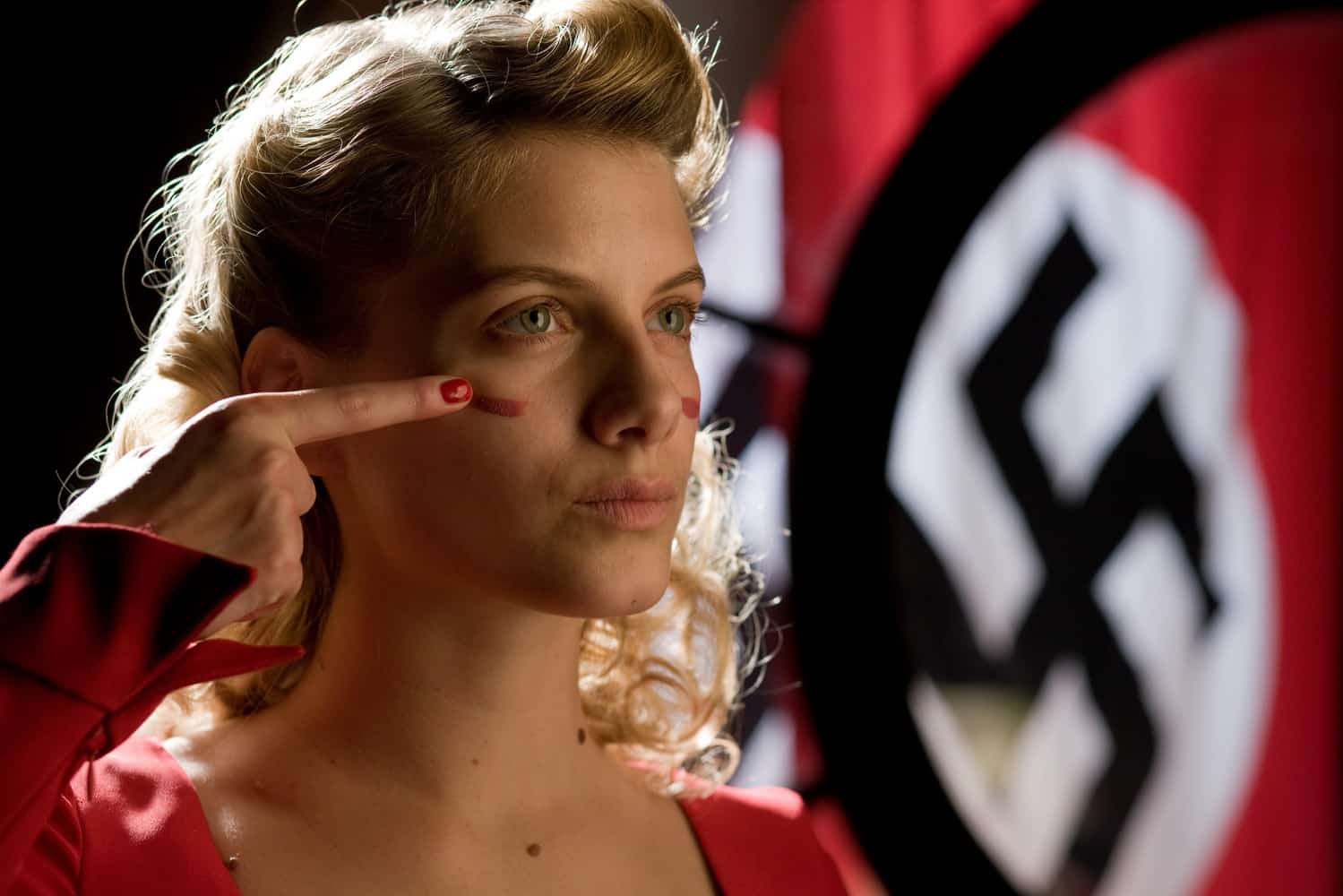

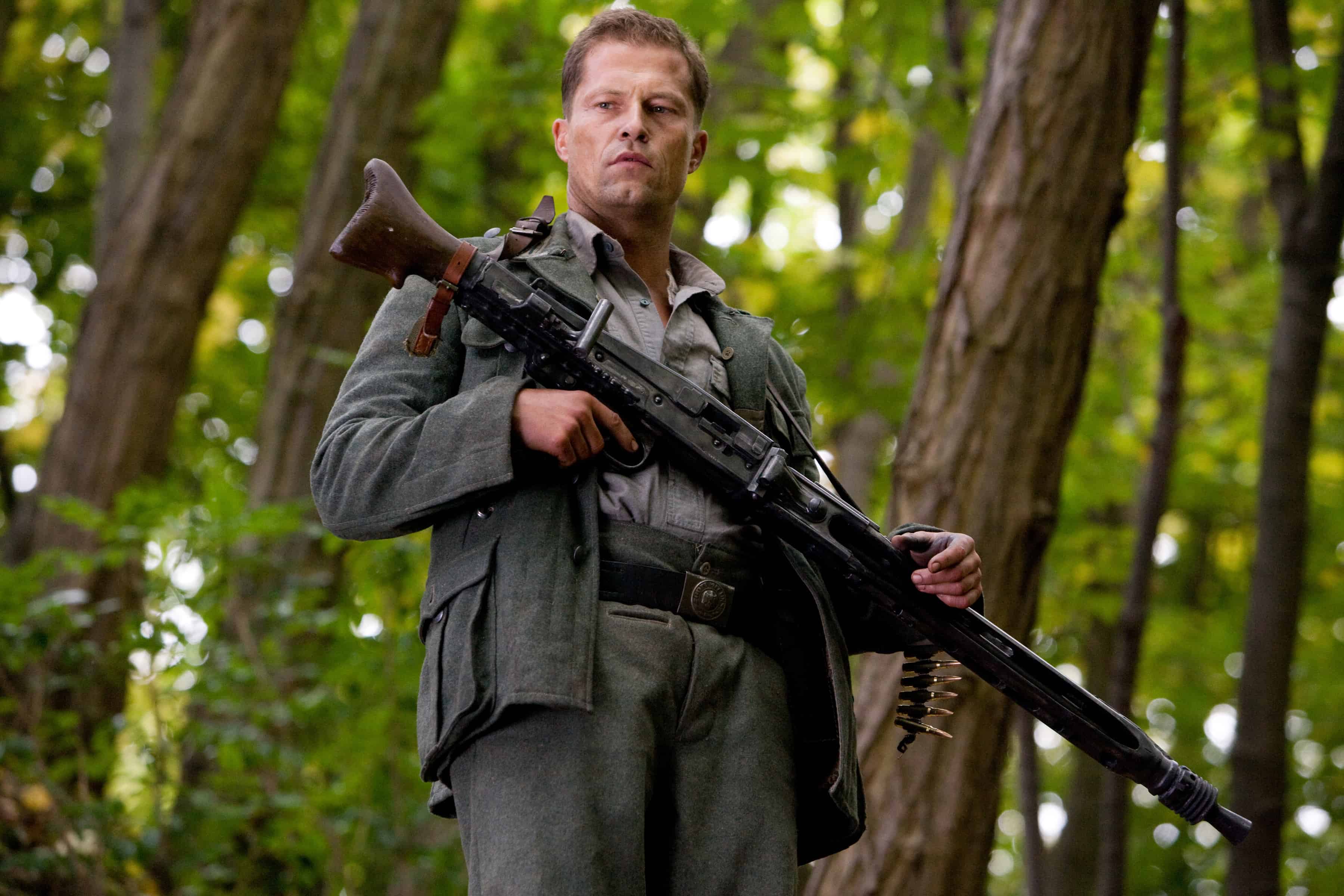


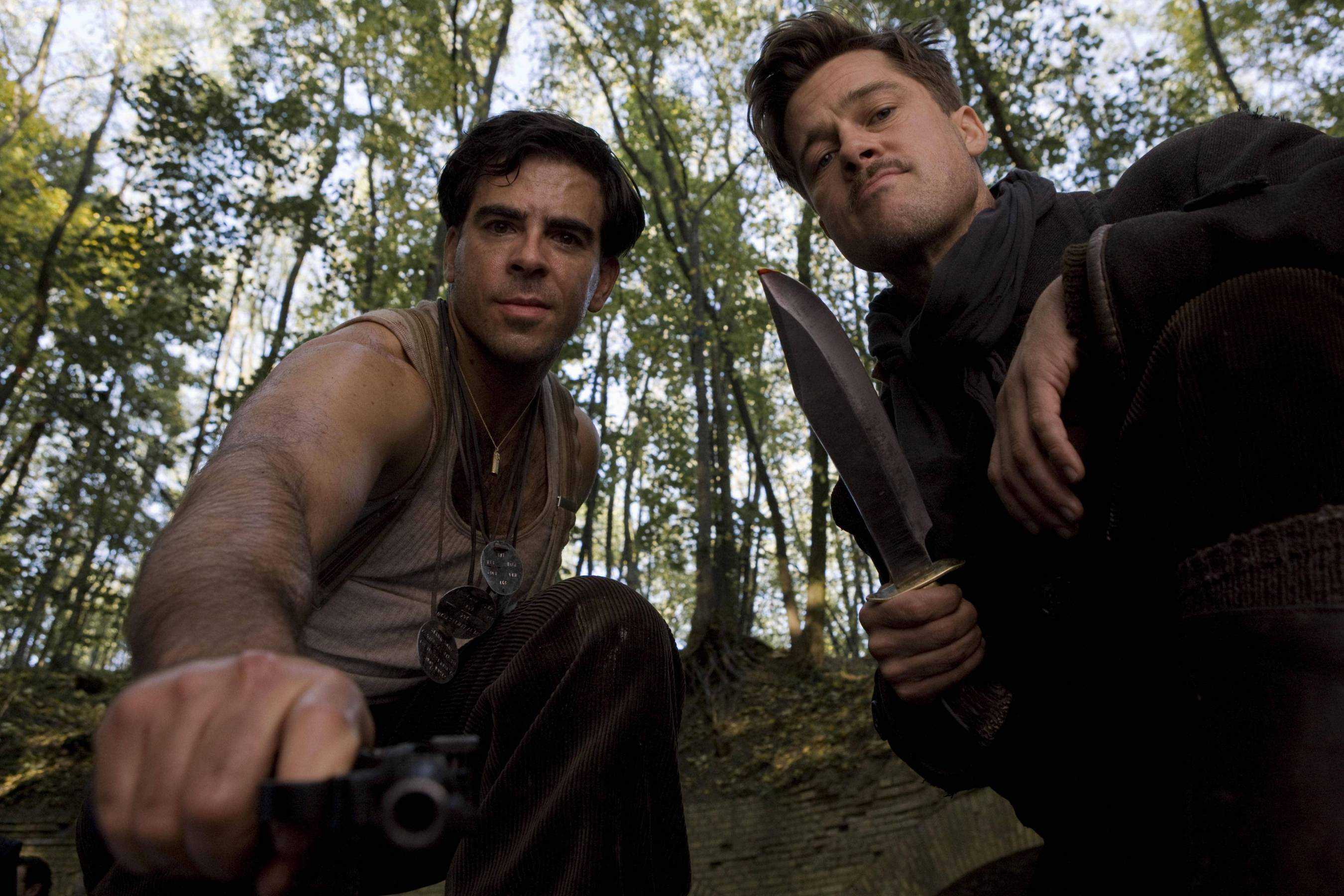
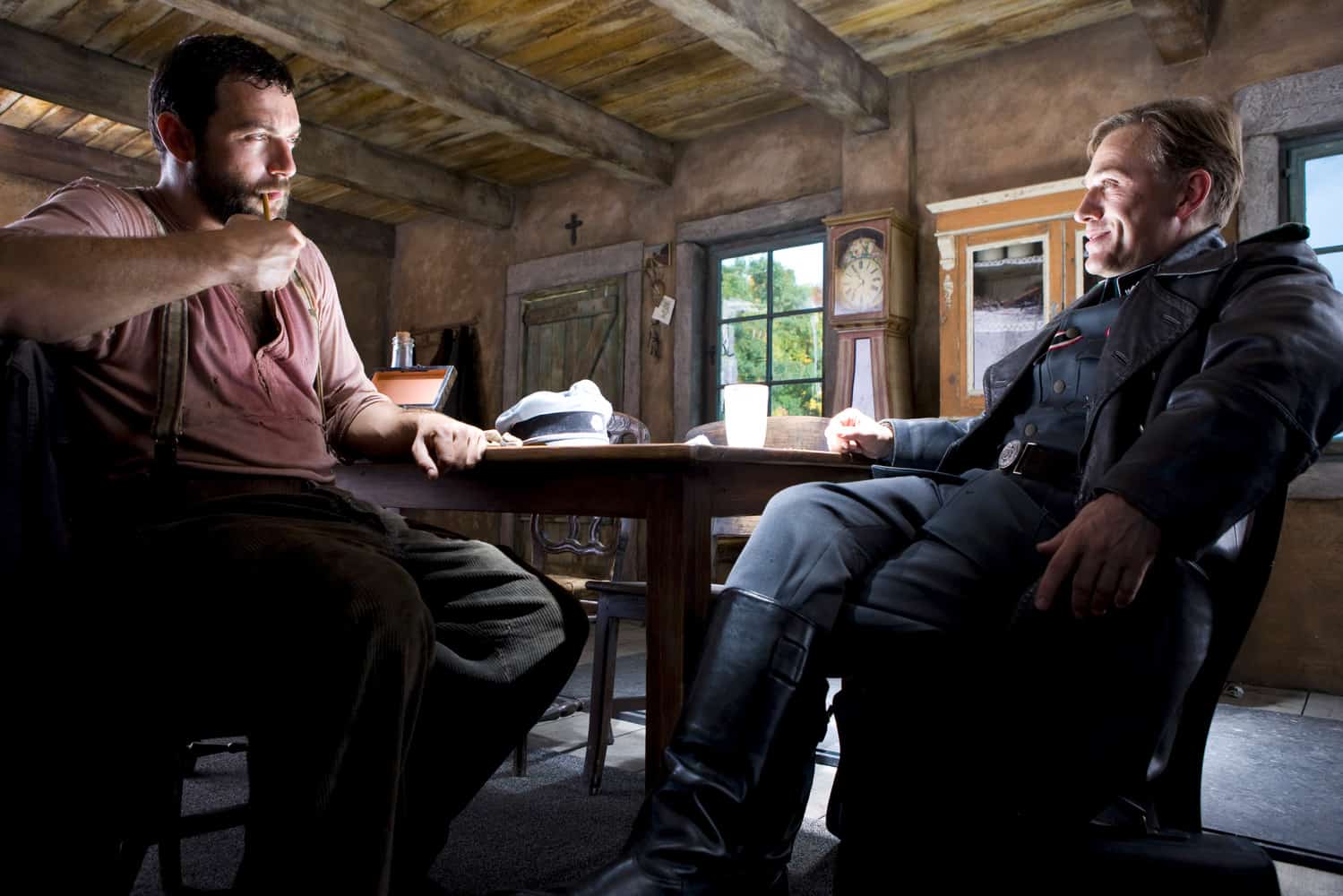
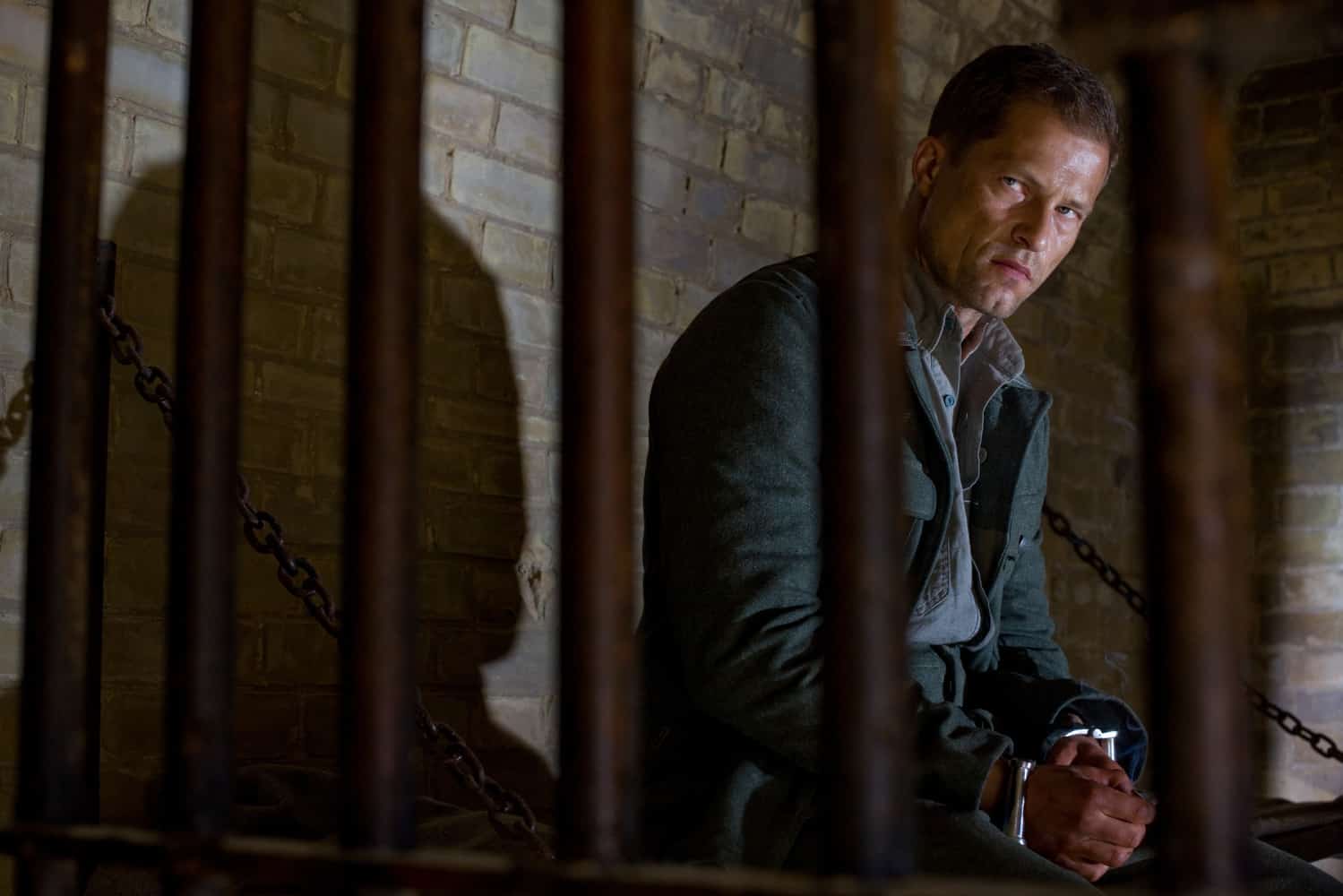

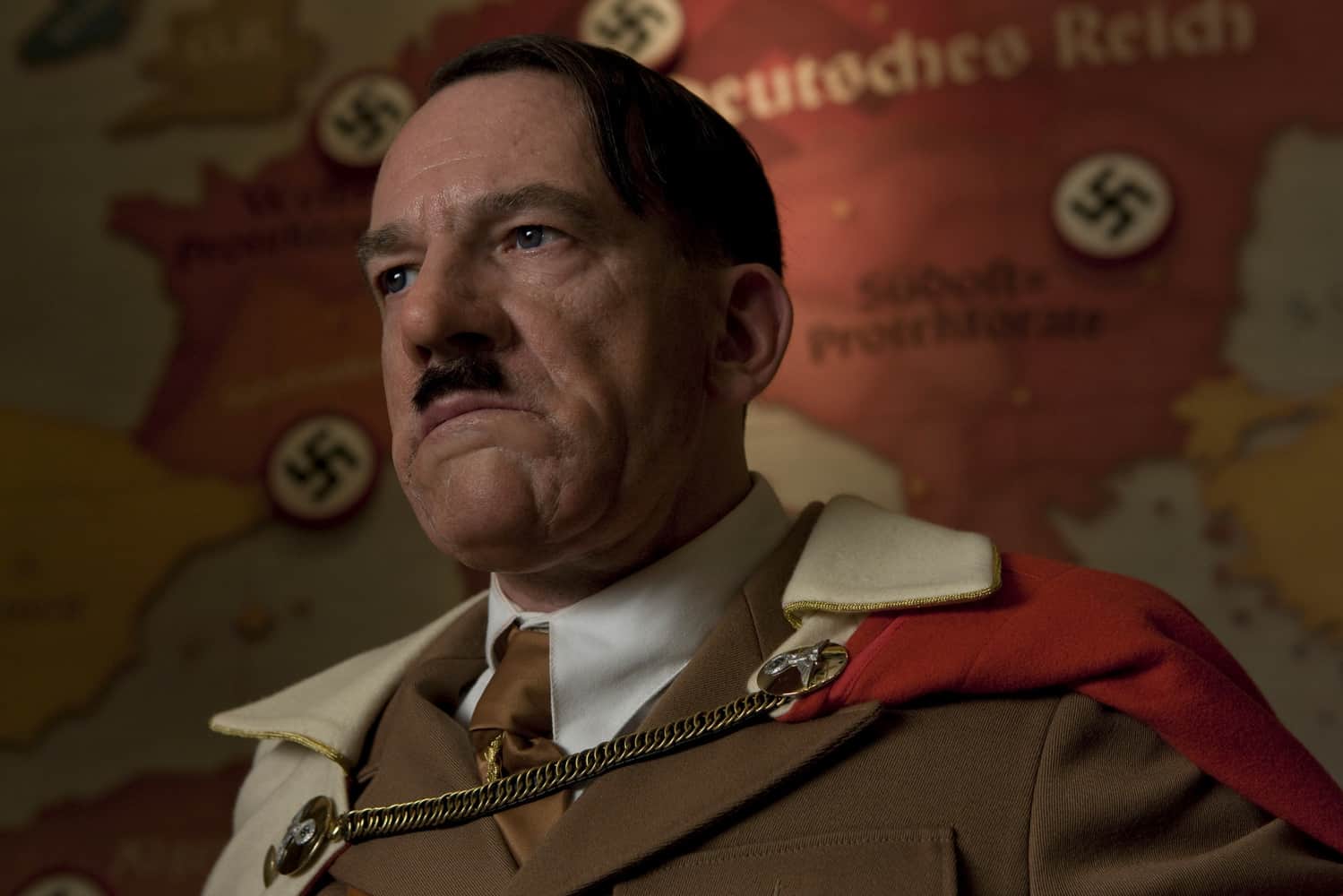
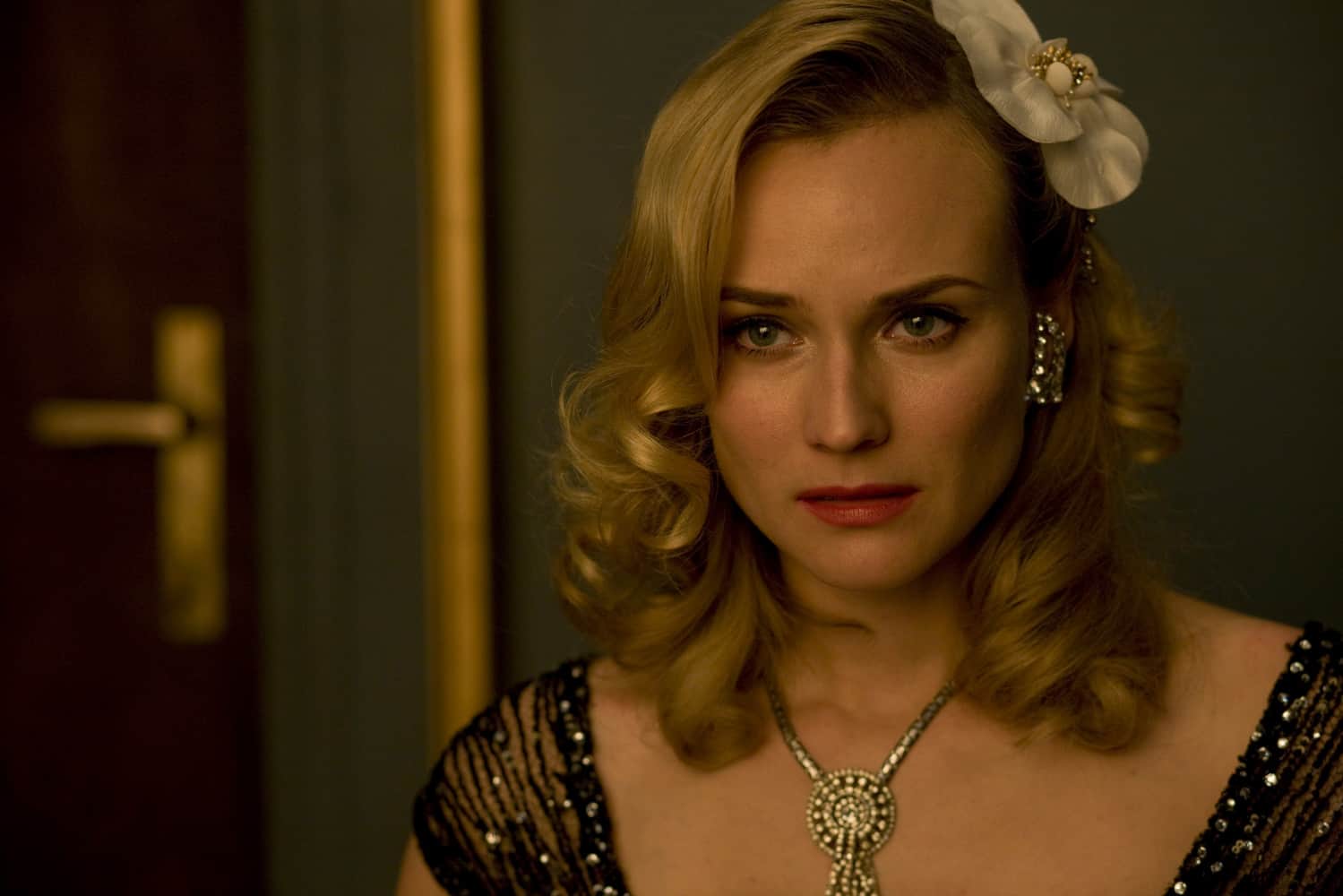
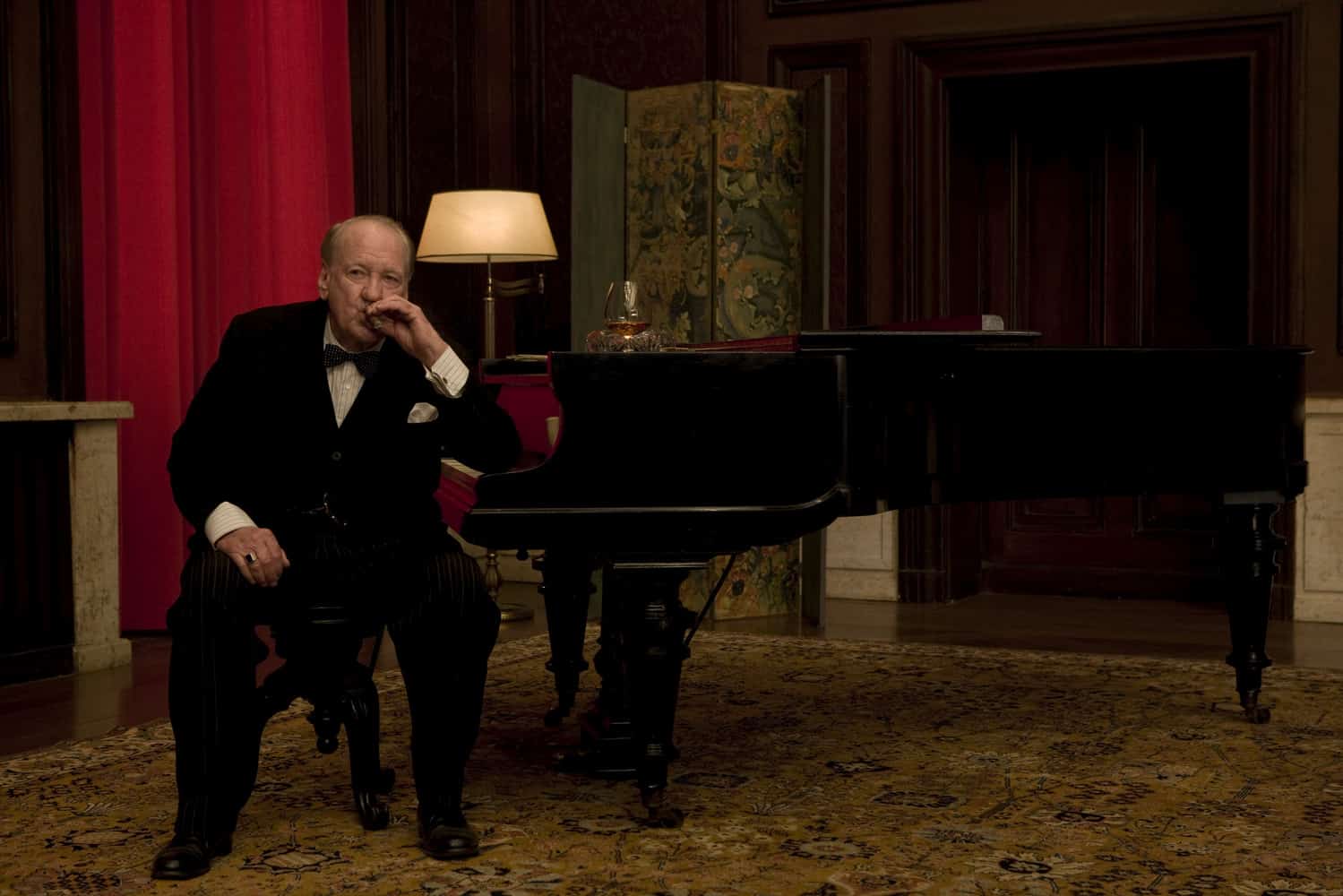
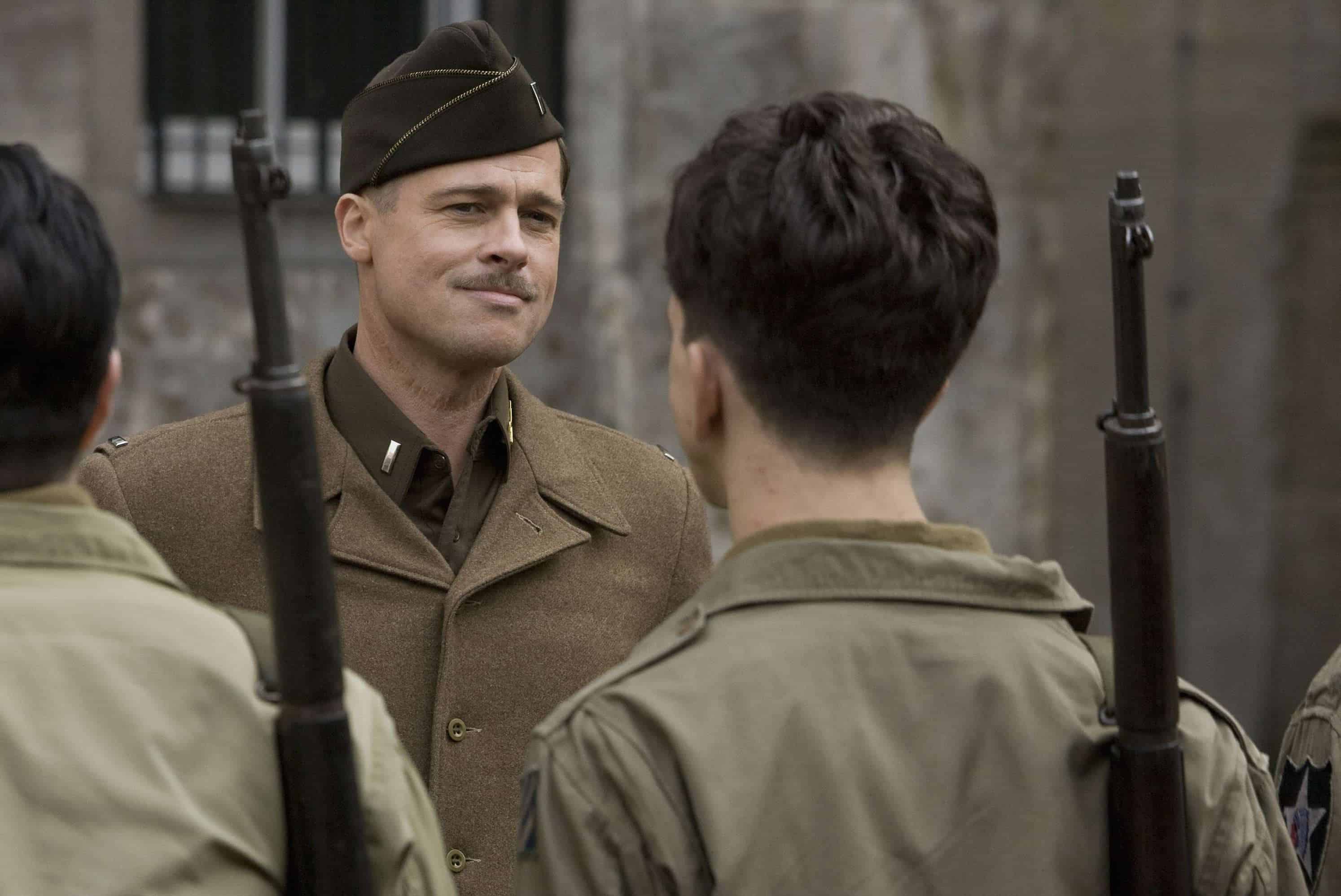
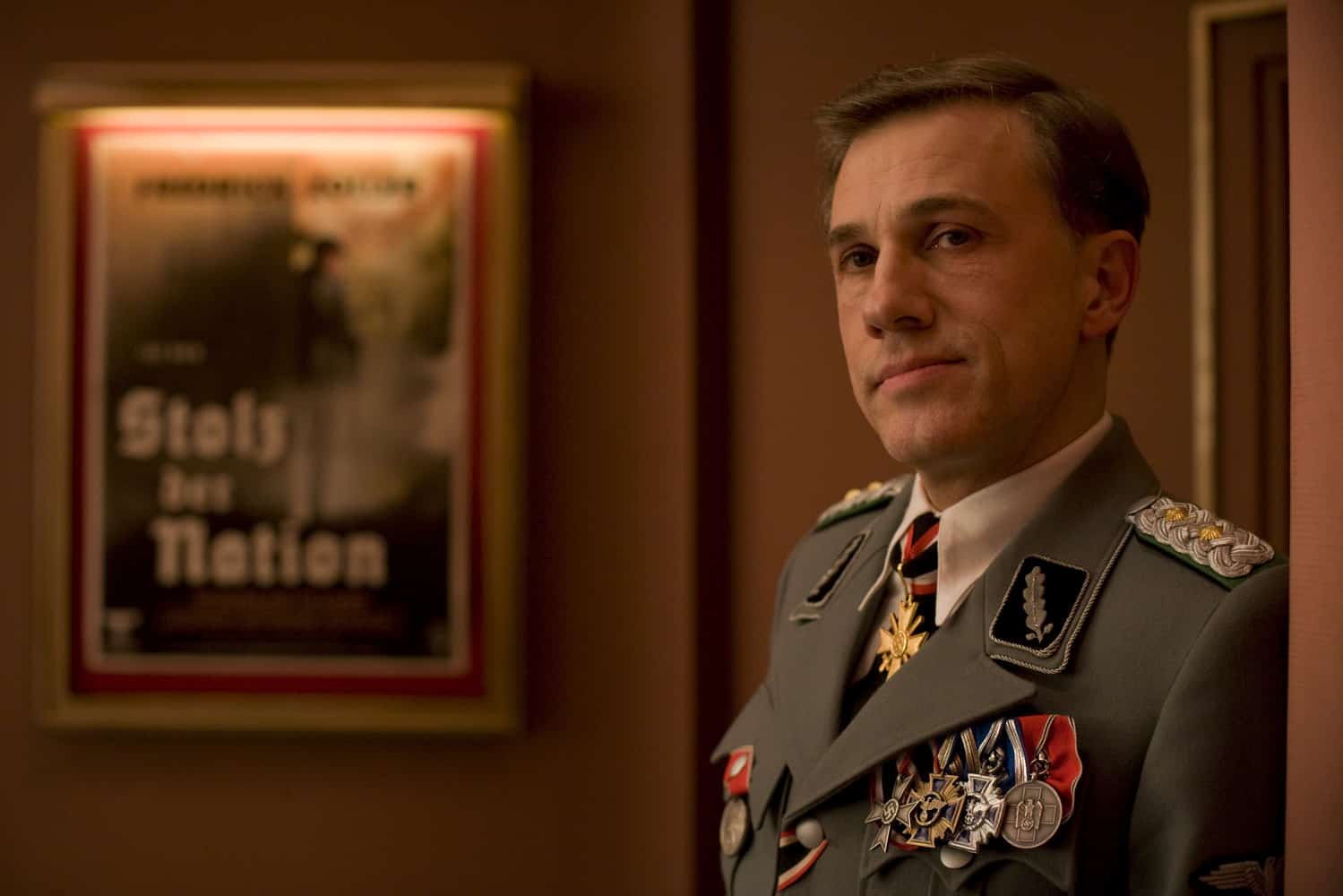

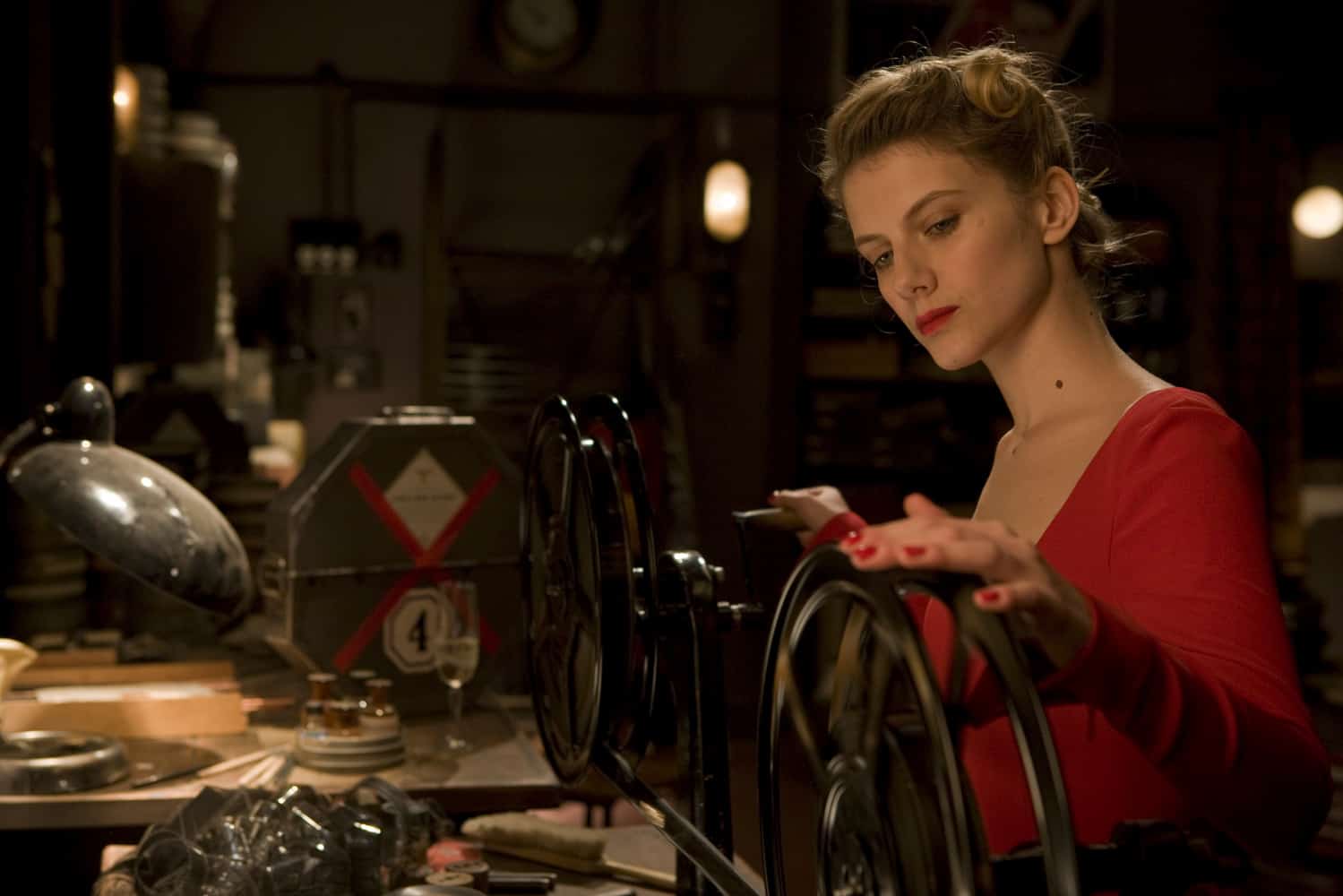
Comments
Loading comments...